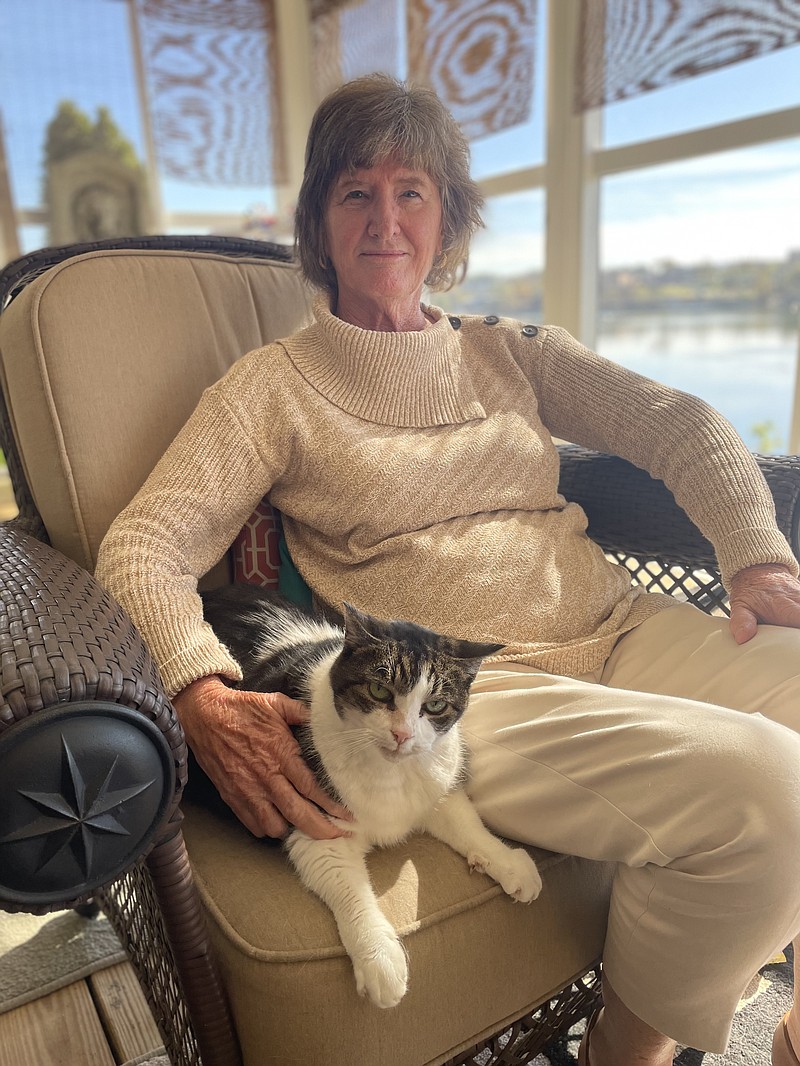Cherie Martinez, a retired United Airlines pilot, turned 65 (the mandatory retirement age) in March 2020, just as COVID-19 hit the United States. The virus spread so quickly she had to cancel her retirement party.
The story of Martinez's professional life is a testament to women's empowerment in the late 20th century.
Told by an airline at age 18 that she "wasn't good looking enough" to be a flight attendant, and later challenged by a man who said "girls can't fly" airplanes, Martinez not only learned to fly, she ascended to the pinnacle of commercial aviation, captaining wide-body Boeing 777 passenger jets from Washington, D.C., to Europe for a time.
If her professional life was inspiring, it played out against a backdrop of personal tragedy.
Martinez's first husband, an Englishman named Tony Herbert, was killed in an airplane crash in the Bahamas in 1991. Her second husband, Hector Martinez, died of cancer in 2003. And her twin brother, David Dyche, along with her sister-in-law and 17-year-old nephew, were among seven people who died when Dyche's 60-foot sailing schooner went down in a storm off the coast of New Zealand in June 2013.
Cherie Martinez moved to Chattanooga when her late husband, Hector Martinez, was stationed here with the Army National Guard. Today, she lives in a condo in North Chattanooga.
Here, in her own words, she shares her story.
—
Chatter Magazine: You've had considerable hardship in your life, right? You've lost two husbands and a twin brother.
Cherie Martinez: Yes, sometimes my life played more like a Greek tragedy.
Chatter: How did your career begin?
Martinez: Some friend of ours said, "I can get you a job as a flight attendant." I had to laugh. I was probably just 18. Basically, they [the airline] just said I wasn't good looking enough. They said I didn't meet their needs. My life would have been totally different if they did hire me.
Chatter: When did you get your pilot's license?
Martinez: Months go by and then this kid who had been taking flying lessons bet me that girls couldn't fly. I thought, "Hmm, I've got to prove him wrong." I gotta admit [though] the first time I [took a lesson] it was like, "Oh, my gosh, I'm scared to death."
Chatter: How did you start earning a living flying?
Martinez: When I was close to having my private pilot's license, I said I would like to [fly for a living]. I was pretty good at it, but I had to study. I used to spend many weekends prepping for a particular test. [By the late 1970s], a lot of people are starting to retire [from the airlines]. ... I got hired on with United in May of '89.
Chatter: So, it was still a challenging environment for women pilots in the late 1980s?
Martinez: Yes. When I was going through some of the [commuter airlines], I've had the owners tell me I would never make captain because I was female. Even with United, a lot of the [former] military [cockpit crew] were very anti-female.
Chatter: Was it a different hiring environment in 1989 when you got hired by United?
Martinez: By then the EEOC [Equal Employment Opportunity Commission] was saying [to the airlines], "you've got to start hiring more diverse people." When I retired, we had more than 800 [female] pilots. But when you are looking at 12,000 pilots [at United], that's not that many.
Chatter: Where did you fly to?
Martinez: I was based in D.C. my whole career. In the late '90s I was on the 777, the wide-body, [flying to Europe] for about three years. When I ended my career I was on the Airbus 320. I was either going to California or Canada or Mexico or the Caribbean.
Chatter: Were you ever treated differently because you are a woman?
Martinez: Oh, yeah. They [passengers] would give me their garbage. They thought I was a flight attendant. We wore the navy blue [pilot's] uniform. I had a person say, "What instrument do you play in the Salvation Army?"
Chatter: What's it like being retired after more than three decades of piloting passenger jets?
Martinez: It was an interesting career. I do miss it at times.... I felt fulfilled. I loved my kids, but love for flying was strong, too.
